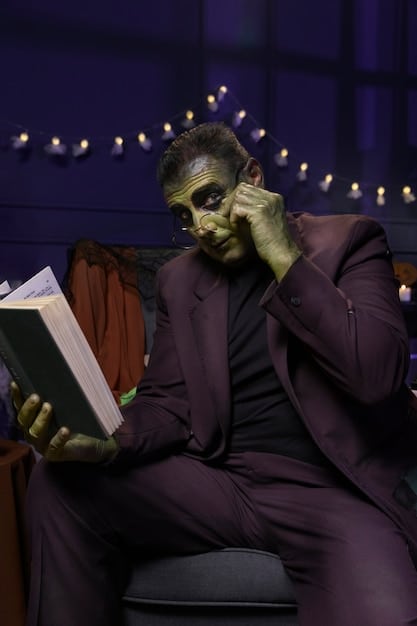Unveiling the Depths of Drama: A Comprehensive Review

Drama reviews provide insightful critiques and analyses of dramatic works, exploring themes, performances, and the overall impact of storytelling, offering a critical perspective for audiences.
Dive into the world of drama reviews, where critical analysis meets passionate storytelling. We’ll explore the nuances of evaluating dramatic performances and narratives, providing a comprehensive understanding for avid enthusiasts and casual viewers alike.
The Essence of Drama Reviews
Drama reviews are more than just opinions; they are carefully constructed arguments based on observation, analysis, and an understanding of dramatic conventions. They serve as guides, helping audiences navigate the vast landscape of theatrical and cinematic offerings.
A good review doesn’t just say whether a drama is “good” or “bad.” It delves into the specifics, examining the strengths and weaknesses of various elements, such as:
Key Elements Evaluated in Drama Reviews
- Acting: The performances of the actors and their ability to embody their characters.
- Plot: The structure and coherence of the narrative.
- Direction: The vision of the director and how it is executed.
- Script: The quality of the dialogue and the thematic depth.
- Production Design: The sets, costumes, lighting, and sound that contribute to the overall atmosphere.

By dissecting these components, reviewers provide a holistic assessment that informs and enriches the viewing experience. Drama reviews play an important part in cultural discourse, shaping perceptions, encouraging critical thinking, and promoting a deeper appreciation for the arts.
The Role of the Critic
The role of a drama critic is multifaceted, demanding both expertise and sensitivity. Critics must possess a comprehensive understanding of dramatic history, theory, and technique to provide informed analysis.
However, they must also be able to connect with a broader audience, communicating their insights in a clear, engaging, and accessible manner.
Responsibilities of a Drama Critic
- Objectivity: Striving for impartiality and avoiding personal biases.
- Contextualization: Placing the work within its historical and cultural context.
- Clarity: Communicating complex ideas in a comprehensible way.
- Insightfulness: Offering original perspectives and thought-provoking observations.
Critiques aren’t personal attacks; they’re about critically thinking and examining how well a piece works against itself and genre standards, not necessarily about praising absolutely perfect pieces all-around, or tearing down those with minor flaws which audiences may easily overlook.
A great critic educates readers, offering them tools for independent evaluation. They inspire nuanced comprehension of the play, movie or drama, helping the audience form their own opinions and engage with the show more meaningfully.
Understanding Different Types of Drama Reviews
Drama reviews come in many forms, each serving a distinct purpose and catering to a specific audience. Recognizing these distinctions can help readers understand the context and intent of a review.
From brief synopses to academic analyses, the variety of drama reviews reflects the diversity of the art form itself.
Common Types of Drama Reviews
- Short Reviews: Concise assessments, often found in newspapers and magazines, providing a quick overview for general audiences.
- In-Depth Reviews: More detailed analyses, typically published in specialized journals or online platforms, exploring complex themes and techniques.
- Academic Reviews: Scholarly critiques, focusing on historical context, theoretical frameworks, and the work’s contribution to the field.

The purpose and style of each review category shifts depending on the target demographic. Short reviews serve casual moviegoers, while in-depth academic reviews are of interest to scholars and serious enthusiasts.
Understanding these distinctions encourages readers to approach their comprehension of varied critical viewpoints and decide which sources resonate best in their individual needs.
The Impact of Reviews on the Industry
Drama reviews exert a significant impact on the success and reputation of dramatic works. Positive reviews can boost ticket sales, enhance an artist’s standing, and generate buzz, while negative reviews can have the opposite effect.
The reception of a play or film shapes its long-term legacy, influencing its place in cultural memory.
Critics have a unique influence on audience perceptions, with their evaluations influencing viewing habits and box office results.
The Dual Edge of Review Influence
While positive reviews can catapult a drama to success, generating enthusiasm and interest, negative reviews are just as impactful, possibly impacting the show’s viability especially during its early stages.
However, reviews are only a single factor among many. Word of mouth, marketing efforts, and cultural shifts can all play a big part in molding viewer perceptions independent of what critics have to say. A balanced view acknowledges that reviews should be treated as merely one point of view.
Despite the weight associated with assessments, it’s vital to bear in mind they are inherently views that are subjective. Private taste, the critic’s individual background, and broader cultural context can impact their reaction.
The Future of Drama Reviews in the Digital Age
The digital age has ushered in a new era for drama reviews, marked by increased accessibility, interactivity, and diversity. Online platforms have democratized criticism, empowering a wider range of voices and perspectives.
Social media has blurred the lines between professional and amateur reviewers, creating a dynamic ecosystem of opinions and discussions.
Trends Transforming the Landscape
Several trends are reshaping the future of drama reviews:
- Online Platforms: Dedicated platforms and websites that centralize reviews, making them easily accessible to a global audience.
- Social Media Engagement: Interactive discussions and debates that bridge the gap between critics and viewers.
- Video Reviews: Visual and engaging formats that complement traditional written reviews.
Social media involvement, in particular, has permitted direct connections between fans, analysts, and creators. This direct contact has established two-way communication, enabling dynamic conversations that enrich the evaluation process. The explosion of platforms for video reviews has altered critical formats, combining visual elements with conventional written formats.
These digital patterns foster a culture where assessments are accessible and interactive, constantly changing how audiences perceive and interact with shows.
Developing Your Own Critical Eye
While reading drama reviews can enhance your understanding and appreciation of the art form, it’s equally important to develop your own critical eye. Cultivating your ability to analyze and evaluate dramatic works can deepen your engagement and enrich your experiences.
This involves honing your observation skills, refining your analytical abilities, and articulating your thoughts clearly and persuasively.
Tips for honing your critical skills
- Active Viewing: Paying close attention to all aspects of the production, from acting to set design.
- Note-Taking: Jotting down observations and thoughts during and after the performance.
- Research: Learning about the historical and cultural context of the work.
- Discussion: Sharing your perspectives with others and engaging in constructive dialogue.
To build your personal vital assessment capabilities, begin by training active observation during plays, films, or other dramatic works. Taking notes will record initial ideas and thoughts, developing a organized journal of observations concerning performance aspects. Investigating the historical and cultural background of the work will provide understanding of its themes, assumptions, and creative aims. Involving yourself in conversations with others will make it possible to compare observations, obtain diverse views, and enhance the capacity to articulate assessments compellingly and concisely.
By often applying these techniques, individuals nurture a more nuanced understanding for dramatic functions, enabling them to become more effective estimators and more involved watchers.
| Key Aspect | Brief Description |
|---|---|
| 🎭 Acting Quality | Evaluation of actors’ performances and character embodiment. |
| 🎬 Plot Coherence | Analysis of the narrative structure and its consistency. |
| ✍️ Script Depth | Assessment of dialogue quality and thematic exploration. |
| 🌐 Review Influence | Impact of reviews on the drama’s success and reputation. |
Frequently Asked Questions About Drama Reviews
▼
Credible drama reviews come from seasoned critics with expertise, unbiased perspectives, and a clear understanding of dramatic elements. They also provide well-supported arguments and contextual analysis.
▼
Reviews can significantly influence ticket sales, audience perceptions, and the overall reputation of a drama. Positive reviews tend to attract viewers, while negative reviews can deter them.
▼
A comprehensive drama review includes evaluations of acting, plot, direction, script, and production design. It should also offer insights into the work’s themes and cultural context.
▼
The digital age has increased accessibility, interactivity, and diversity in drama reviews. Online platforms and social media have empowered more voices and enabled dynamic discussions.
▼
To improve critical thinking, actively view the drama, take notes on observations, research the context, and engage in discussions. These practices enhance your analytical abilities and appreciation.
Conclusion
In conclusion, drama reviews are an essential component of the theatrical and cinematic landscape, providing valuable insights, shaping audience perceptions, and fostering critical dialogue. By understanding the elements of a good review, the tasks of critics, and the impact of various overview types, viewers can develop their crucial eyes and obtain an enriched understanding for dramatic works.





![Unveiling the Layers of [Drama Series Title]: A Deep Dive Review Unveiling the Layers of [Drama Series Title]: A Deep Dive Review - Cover Image](https://oramacast.com/wp-content/uploads/2025/07/oramacast.com_5_1752083599_3546b109_cover-360x180.jpg)